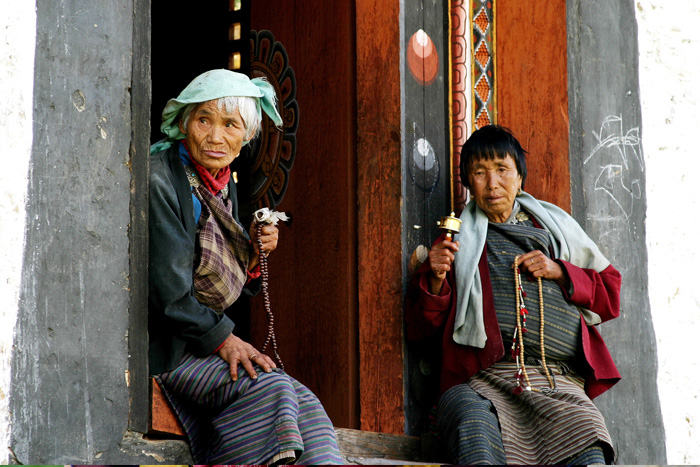Gross National Happiness
Any visitor to Bhutan will soon become acquainted with the term GNH or ‘Gross National Happiness.” This concept was invented by His Majesty the Fourth King Jigme Singye Wangchuck in the 1970s and quickly became known the world over. Bigger and more developed nations were intrigued with the idea of this small Himalayan nation that valued its citizens happiness and well-being over economic growth.
A complex and multi-faceted concept, GNH emphasizes sustainable development. Its four pillars are good governance, sustainable socio economic development, cultural preservation and environmental conservation. In Bhutan, GNH is not an abstract idea but a policy that influences development and decision-making. An understanding of GNH and how it affects Bhutan will help you understand why this small nation is often associated with happiness.
The concept of Gross National Happiness is based on the idea that true development can only occur when material and spiritual growth happens side by side, as opposed to conventional development models that emphasize just economic growth. The concept of GNH is now being developed and adopted by an array of experts, academics, and organizations around the world.
Effects of the GNH policy can be felt on your trip to Bhutan. For example, the promotion and protection of cultural traditions have been made easier by the high value, low impact tourist policy. This is also seen in the multitude of religious and cultural sites, as well as efforts to encourage local arts and crafts, music and literature. The goal of environmental conservation is seen not just in 71% forest coverage but in the five national parks, four wildlife sanctuaries, nine biological corridors and one nature reserve.
At first, Gross National Happiness may be a difficult concept to wrap your mind around. At its most basic, it is borne from the Buddhist belief that although human desire and greed are limitless, we need very little to be happy. Visit Bhutan to see the principles of GNH in action and judge for yourself whether a country’s sustainable approach to development can result in truly happy citizens.





